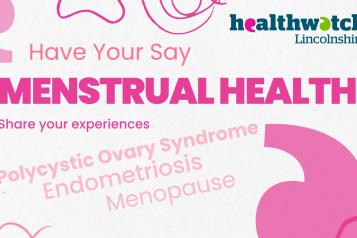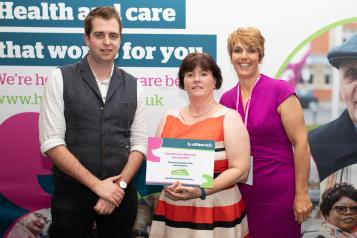What is domestic abuse and how can I get support?
The information in this article is taken from Refuge, Women’s Aid and Woman’s Trust.
Women’s Aid defines domestic abuse as an incident or pattern of controlling, coercive, threatening, degrading and violent behaviour, including sexual violence. In most cases, it is by a partner or ex-partner but could also be by a family member or carer. It is very common.
Domestic abuse can happen to anyone, regardless of age, background, gender, religion, sexuality or ethnicity. However, statistics show most domestic abuse is carried out by men and experienced by women.
Domestic abuse is never the fault of the person who is experiencing it.
Domestic abuse is a crime.
Stay safe online
If you need to close this website quickly, click the Quick Exit buttons in this article. This will open up the Google homepage, but it won’t hide the fact that you’ve been on our website. To do that you would need to delete your computer’s browsing history.
The Woman’s Trust has more information about browsing safely online.
Domestic abuse and coronavirus
Measures introduced by the Government to tackle coronavirus will mean many people will be feeling unsafe staying in a home with an abusive person, isolated from their support networks.
In response, the Government has said the coronavirus household isolation instructions do not apply if you need to leave your home to escape domestic abuse.
Women’s Aid has put together advice and information about support available.
What is domestic abuse?
Domestic abuse is not always physical violence. It can also include, but is not limited to:
- coercive control and ‘gaslighting’ (a pattern of intimidation, degradation, isolation and control with the use or threat of physical or sexual violence)
- financial or economic abuse
- online or digital abuse
- verbal abuse
- emotional and/or psychological abuse
- physical or sexual abuse
- harassment or stalking
Signs of domestic abuse
Has someone close to you:
- threatened or humiliated you, maybe in front of others
- damaged your belongings or property
- controlled what you do
- controlled how you use, or have access to, money
- followed or visited you without your permission
- been putting you down constantly, criticising you
- blamed their culture, religion or personal problems as an excuse for their behaviour towards you
- pushed, bullied, slapped, kicked, punched or seriously hurt you
- forced you to have sex when you don't want to
- forced you to make decisions you don't agree with (personal, physical, financial, legal or maybe about a family member)
- threatened you or made you fear for your safety
Women’s Aid has an online questionnaire, which might help you to recognise if you are in an abusive relationship.
What to do if you're in immediate danger
If you or someone you know are in danger you should phone 999 and ask for the police.
If you are unable to talk on the phone, dial 999, listen to the questions from the operator and respond by coughing or tapping the handset if you can. Then follow the instructions depending on whether you are calling from a mobile or a landline.
If you call from a mobile
If prompted, press 55 to Make Yourself Heard - this will transfer your call to the police. Pressing 55 only works on mobiles and does not allow police to track your location.
If you call 999 from a landline
If only background noise can be heard and BT operators cannot decide whether an emergency service is needed, then you will be connected to a police call handler. If you replace the handset, the landline may remain connected for 45 seconds in case you pick up again. When 999 calls are made from landlines, information about your location should be automatically available to the call handlers to help respond.
If you or someone you know are in danger you should phone 999 and ask for the police.
If you are unable to talk on the phone, dial 999, listen to the questions from the operator and respond by coughing or tapping the handset if you can. Then follow the instructions depending on whether you are calling from a mobile or a landline.
Organisations and charities that can support you
Refuge - National Domestic Abuse Helpline
Refuge runs the National Domestic Abuse Helpline, which you can call for free, and in confidence, 24 hours a day. Its website provides guidance and support for people affected by domestic abuse, as well as those who are worried about friends and loved in ones. It also has a form you can use to book a safe time for a call from them.
0808 2000 247
https://www.nationaldahelpline.org.uk/Contact-us
Women's Aid
Women's Aid works with women and children to end abuse. If you're experiencing domestic abuse you can chat to them using their instant messaging service, email one of their support workers, speak with other women in their forum of survivors or get help and advice from their survivor's handbook.
Woman's Trust
Woman’s Trust is a specialist mental health charity, providing free counselling and therapy for women who have experienced domestic abuse.
Man Kind
Man Kind support men suffring from domestic abuse from their current or former partner (including same-sex partners). Their confidential helpline is available weekdays 10 am - 4 pm.
018230334244
Galop
Galop provides Hate Crime, Domestic Abuse and Sexual Violence support services to LGBTQ+ victims and survivors by telephone, text and WhatsApp. Their helpline is available 10 am - 5 pm Monday to Friday and until 8pm on Wednesday and Thursday.
0800 999 5428
Imkaan
Imkaan is a UK based, Black feminist organisation addressing violence against Black and minority women and girls. Their website has a list of specialist oranganistaions by and for BME women.
https://www.imkaan.org.uk/get-help
Southall Black Sisters
Southall Black Sisters offer specalist support, advocacy and information to Asian and Afro-Caribbean women suffering abuse.
https://southallblacksisters.org.uk/
Karma Nirvana
Karma Nirvana supports victims of honour-based abuse and forced marriage. Their helpline is open 9 am - 5 pm, Monday to Friday.
0800 5999 247
LAWA
Latin America Women's Aid runs the only two refuges in Europe by and for Latin American women and children fleeing gender-based violence. They offer advice in Spanish, Portugese and English.
0753 442 4826 (Spanish and English) - 9.30 am - 5.30 pm
0746 200 3324 (Portuguese and English) - 9.30 am - 1 pm
SignHealth
SignHealth provides domestic abuse service support for death people in British Sign Language (BSL).
020 3947 2601 (call)
07970 350366 (text, WhatsApp or Facetime)
https://signhealth.org.uk/with-deaf-people/domestic-abuse/
Stay Safe East
Stay Safe East provides specalist and holistic advocacy and support to disabled victims and survivors of abuse. Their helpline is open 10 am - 5 pm, Monday to Thursday.
0208 519 7241
07587 134122 (text)
Finding Legal Options for Women Survivors (FLOWS)
FLOWS gives legal advice to women who are affected by domestic abuse - they also give advice to front line workers.
Helpline: 0203 745 7707
Monday to Sunday, 9am to 5pm
Email: FLOWS@rcjadvice.org.uk
Website: https://www.rcjadvice.org.uk/family/flows-finding-legal-options-for-women-survivors/
Organisations for men
Respect - Men's Advice Line
The Men's Advice Line is a confidential helpline for all men experiencing domestic violence by a current or ex-partner. They provide emotional support and practical advice, and can give you details of specialist services that can give you advice on legal, housing, child contact, mental health and other issues.
Helpline: 0808 801 0327
Monday and Wednesday, 9am to 8pm
Tuesday, Thursday, Friday, 9am to 5pm
Email: info@mensadviceline.org.uk
Website: www.mensadviceline.org.uk
Action on Elder Abuse
Action on Elder Abuse gives confidential advice and information to older people who are victims of violence or abuse. A relative or friend of the person being abused can also contact the helpline on behalf of the older person. The helpline can be used in the case of older people who live at home, in a care home or who are in hospital.
Helpline: 0808 808 8141
Monday to Friday, 9am to 5pm
Tel: 020 8835 9280
Email: enquiries@elderabuse.org.uk
Website: www.elderabuse.org.uk
More local
EDAN Lincs Domestic Abuse Service is a registered charity. We cover the county of Lincolnshire, and provide support and assistance to men, women and children suffering, or fleeing from domestic abuse.
Contact
EDAN Lincs Domestic Abuse Service
PO Box 125, Lincoln, LN1 1HA
Tel: 01522 510041
General Enquiry: info@edanlincs.org.uk
Secure Email: info.secure@edanlincs.cjsm.net
Contact us in confidence for a non-judgemental, friendly service.
We support any women, men or children who are, or have experienced Domestic Abuse, whether physical, sexual, emotional or financial abuse, including coercive and controlling behaviour, forced marriage and so called honor based violence, who are living either permanently or temporarily in the Lincolnshire area.
Lincolnshire Rape Crisis
We are here for you
Refer yourself on our website
www.lincolnshirerapecrisis.org.uk/refer.php
Support Line
0800 33 4 55 00
The support line on 0800 33 4 55 00 is open for you to speak with one of our support workers at the following times:
Wednesday 6pm to 9pm
At all other times you can leave a message for someone to call you back if it’s safe to do so.
EMAIL SUPPORT
You can email us at support@lincolnshirerapecrisis.org.uk
TALK TO US ON LIVE CHAT
Rape Crisis England & Wales - Live Chat Helpline
The Rape Crisis England & Wales (RCEW) Live Chat Helpline offers a text-based service for women and girls who have experienced sexual violence.
The Live Chat Helpline operators are there to listen and offer you emotional support for up to 30 minutes. You can talk about what happened to you, how you feel, and any difficulties you are facing.
To access the service, or find out more information, including opening times, please visit the RCEW website
We support survivors who live or work in Lincolnshire, who have been affected by any form of sexual violence at any point in their lives and are willing to engage in support/therapy relating to these experiences

